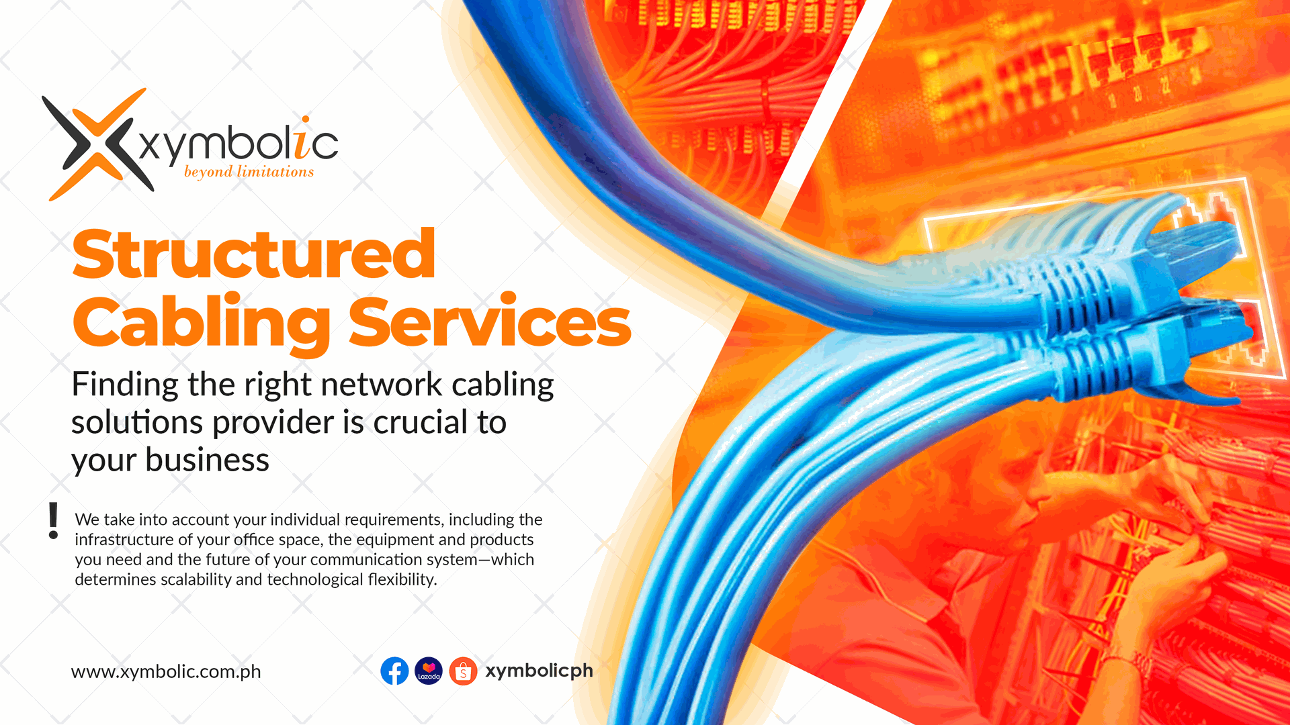
WHAT IS STRUCTURED CABLING?
The importance of structured cabling.

What is Structured Cabling?
Structured cabling is a modular system for organizing a company's cabling system and infrastructure for businesses, organizations or the government institutions to transmit data, voice, alarm, video or signals through the network. This is because a structured cable network is more secure and robust compared to networks that are based on wireless technology.
Structured cabling is the design and installation of a cabling system that will support multiple hardware uses and be suitable for today's needs and those of the future.
Reliable
Structured cabling is designed to be more reliable than traditional twisted-pair wiring as it utilizes higher-quality cable and connectors. This makes structured cabling ideal for mission-critical systems that require consistent performance over an extended period of time.
Less downtime
Faulty connections can be easily identified in a structured cabling environment due to the way that it is laid out. This makes problem diagnosis and repair faster and easier.
Cost-effective
The scalability and flexibility of structured cabling make it a cost-effective solution for businesses. The cost of installation is also lower than traditional wiring as the layout is predetermined and requires less labor. Additionally, repair and maintenance costs are reduced due to the ease with which faults can be identified.
Enhanced scalability
Structured cabling allows for easy expansion or modification of systems without extensive rewiring, which can prove costly. As the cabling layout follows a standard design, new components can be added to existing systems without difficulty.
Cybersecurity
This structured cabling system has unique security features, functionalities that only the authorized users can access. With such types of systems in place, problems of cyber security have no chance in your company.
Enhanced flexibility
Structured cabling provides greater flexibility than traditional wiring as it uses fewer cables with more connectors connected along designated pathways. This makes it easier to configure different devices across multiple locations, allowing businesses to quickly adapt their networks as new technologies emerge.
Why XYM?
We are certified in cabling standards.


Now Offering!
Fluke testing copper qualification services level 3.
What is fluke test?
A fluke test is a series of industrial tests and measurements for physical links conducted with fluke testers such as the Fluke Network Cable Analyzer, which can provide “pass” or “fail” information in accordance with industry standards. It provides a level of assurance that network cabling links have the desired network transmission capability to support the data communication desired by the users. In the Fluke test, patch cord testing, channel testing, and permanent link testing are adopted by installers and end-users to verify the performance of the installed twisted-pair cabling links.
Fluke testers have great capabilities when it comes to troubleshooting cable, all while maintaining a higher grade of accuracy. It can not only graphically display failures including crosstalk, return loss and shield faults, but also analyze the test results and deliver a professional Fluke test report. Besides, Fluke testers will allow you to track and archive your test results for future reference. Having data to reference is especially important, as the same network may be tested multiple times over a span of a few years. Using professional Fluke network testers, you can download software in order to keep all the various test results and network tester information in one place, which makes it easier to manage the job.
